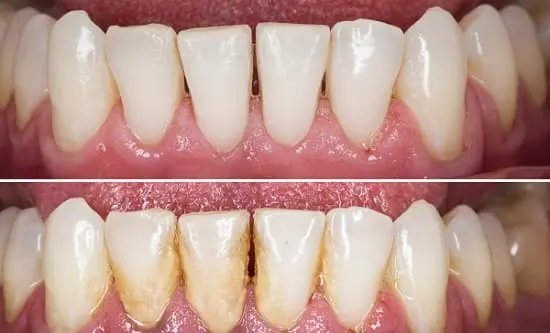When it comes to oral hygiene, teeth cleaning is a critical aspect that often goes overlooked. But did you know that neglecting regular teeth cleaning can lead to more than just cavities and bad breath? It can actually become a root cause of some other serious illnesses and diseases. Teeth cleaning is a common dental procedure performed by dentists to maintain oral health and improve the appearance of teeth. However, with the rising cost of living, many people are hesitant to invest in regular teeth cleaning. But what if we told you that regular teeth cleaning can actually save you money in the long run, by preventing costly and invasive dental procedures?
In this article, we will unveil the secrets of teeth cleaning in India. We will dive deep into the various types of teeth cleaning procedures available, including scaling, polishing, and teeth whitening. We will also reveal the cost of teeth cleaning in different regions of the country and provide insider tips on how to choose the perfect procedure for yourself. From preventing serious health issues to improving your appearance, regular teeth cleaning is an investment worth making. So, whether you're looking to maintain your oral health, improve your appearance or just save money, this article is a must-read.

There are some variables that can affect the cost of teeth cleaning procedures in India, for example;
In some parts of India, you can get your teeth cleaned for as low as 500 rupees by a qualified dentist. However, the teeth cleaning procedure cost may range on average between 1,000 rupees to 20,000 rupees in India.
In India, you can opt for four different types of teeth cleaning procedures, and all of these procedures are easily accessible in every part of the country.
Scaling and polishing
This is a common procedure that involves removing plaque and tartar buildup from the teeth using specialized tools or types of equipment. These equipment called ultrasonic scalers, use high-frequency sound waves to break up and remove plaque and tartar. The teeth are then polished with a special paste and a high-speed brush to remove any surface stains and leave them smooth and shiny. This procedure not only improves the appearance of your teeth but also helps to prevent tooth decay and gum disease.
Root planing
This procedure involves removing plaque and tartar buildup from the roots of the teeth, smoothing the surface of the roots, and encouraging reattachment of the gums to the teeth. The procedure is done under local anesthesia and may require more than one session. Root planing not only improves the appearance of your gums but also helps to prevent tooth loss and further progression of gum disease.
Teeth whitening
This is actually a cosmetic procedure that involves using bleaching agents to lighten the color of the teeth. The most common method of teeth whitening is using hydrogen or carbamide peroxide gel with a special light or laser. The procedure takes about an hour and can make your teeth several shades whiter. You can also opt for take-home whitening kits that can be used at home.
Air polishing
Unlike traditional scaling and polishing, air polishing is a gentle, non-invasive method of cleaning teeth that is perfect for people with sensitive teeth. This is a newer procedure that uses fine powder and compressed air to remove surface stains and plaque from the teeth. The fine powder and compressed air work together to remove surface stains and plaque, leaving your teeth looking clean, shiny, and smooth.
Q1. Is dental cleaning painful?
Ans: Dental cleaning is a standard procedure that is essential for maintaining good oral hygiene, but it is not always associated with pain. Most people experience mild discomfort or pressure during the cleaning, but this is usually brief and manageable. The procedure is usually done under local anesthesia which numbs the area being worked on, so you should not feel any pain. Some people may experience sensitivity after the cleaning, but this can be relieved with sensitivity toothpaste or other products recommended by your dentist.
Q2. Is teeth cleaning permanent?
Ans: Teeth cleaning is not permanent, as it removes plaque and tartar build-up, but does not prevent it from forming again. To maintain the results of the procedure, regular oral hygiene such as brushing, flossing, using an antiseptic mouthwash, and avoiding stain-causing food and drinks is important. Even with good oral hygiene, stains and discoloration may eventually reappear and in such cases, whitening treatments may be needed to maintain the desired level of whiteness.
Q3. How long does a teeth cleaning take?
Ans: The duration of a teeth cleaning procedure can vary depending on the type of cleaning procedure being performed and what the patient’s requirements are. Regular teeth cleaning, which includes scaling and polishing, usually takes about 30 to 60 minutes, whereas Root planing which is a more extensive procedure, can take up to an hour. Talking about Air polishing, which is a newer and less invasive method of cleaning teeth, typically takes about 15-20 minutes.
Q4. Who should consider teeth cleaning?
Ans: It’s not necessary that you should pay a visit to a dentist only when you are having any oral hygiene or teeth problems. Literally, anyone can or should consider teeth cleaning procedures, at least once a year to maintain good oral hygiene, and of course that gorgeous smile of yours.
Q5. Is there any recovery period post-procedure?
Ans: If you think that you’d have to wait for a day or two before you can go to your work, well we want to let you know that it's not the case with teeth cleaning procedures at all. There is literally no recovery period post-procedure, just head out to the dentist’s clinic, and go about your day as usual. That's it.
Related Topics
| Wisdom Teeth Removal Cost In India | Root Canal Treatment Cost In India |